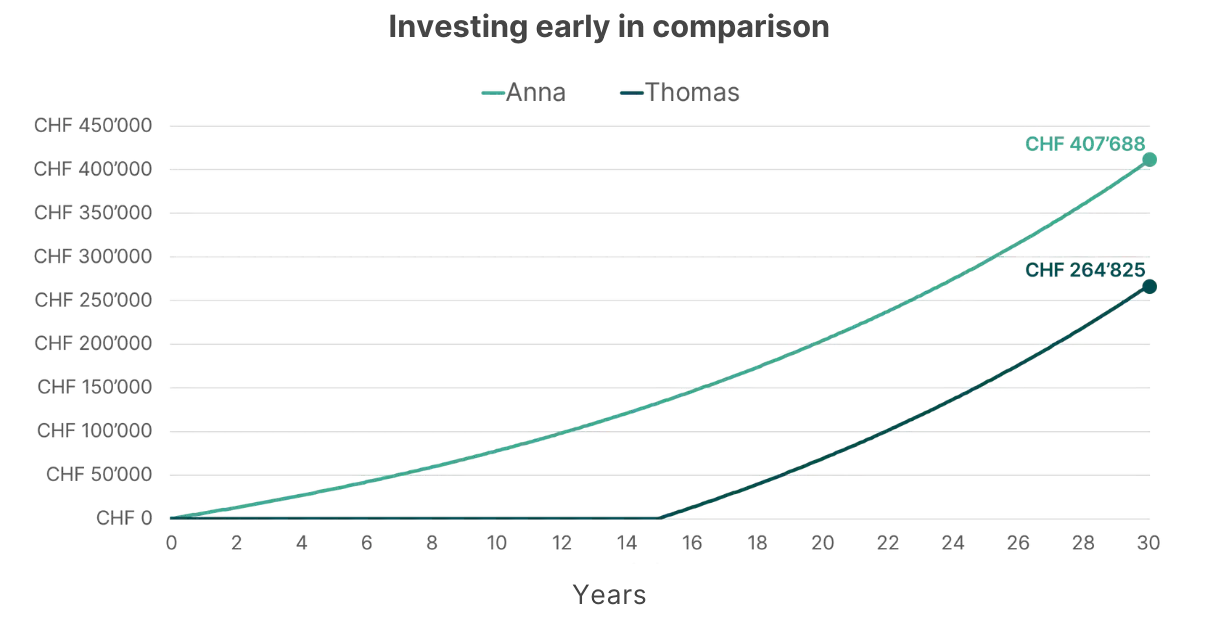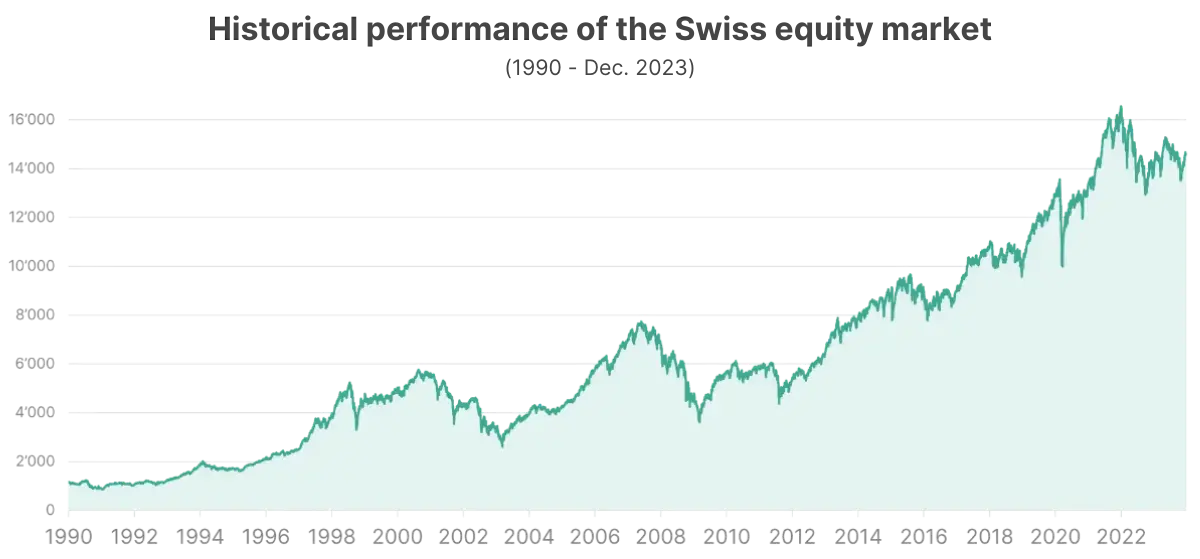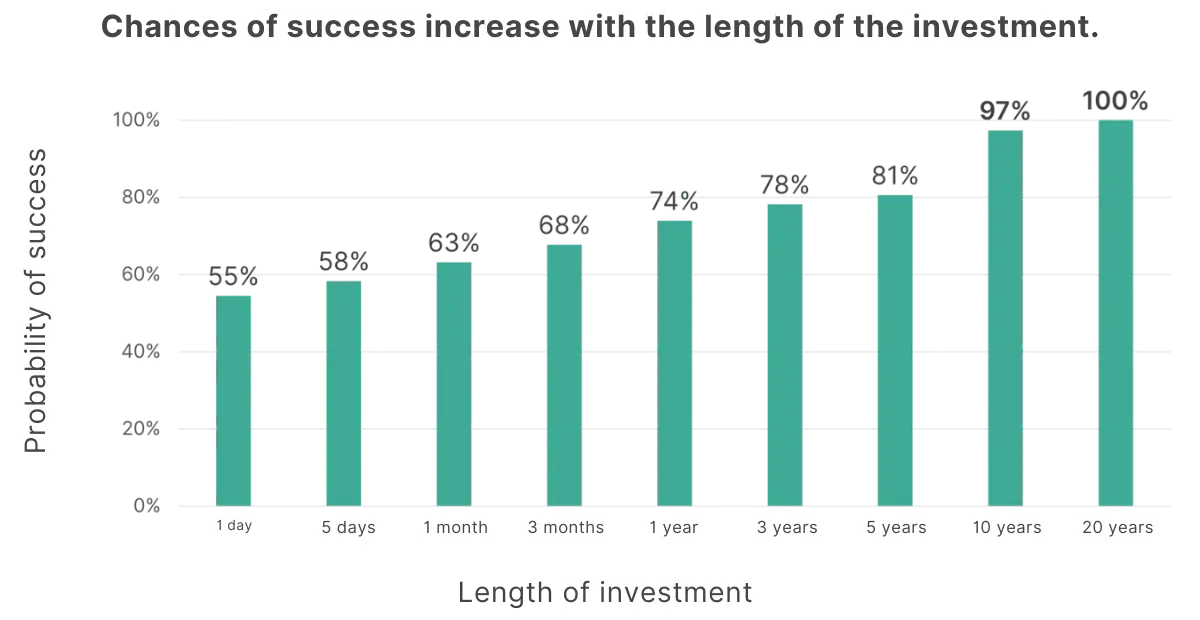
Investing early pays off
Only 30% of 19 to 25-year-olds in Switzerland invest in equities. In the age group between 26 and 49, the figure is 36% (Moneyland Study 2018). Okay, you don’t have to do everything at a young age – you can still skydive when you’re sixty – but when it comes to investing, it definitely pays to start early.
Advantage No. 1: Larger financial buffer
Whether you start investing today or in 15 years makes quite a difference, as the following example shows:
Anna is clever and from today on saves CHF 500 every month and invests it. After 30 years, she has built up a nice financial buffer of over CHF 400,000 with her investment solution. Thomas only realises 15 years later that he should also invest. He tries to catch up and invests twice as much (CHF 1,000) every month.
After another 15 years, Thomas and Anna have each paid a total of CHF 180,000 into their investment solution. Thomas’ financial cushion has grown to just over CHF 260,000 – that’s about CHF 140,000 less than Anna has at this point, who simply started earlier!

Note: the return of the investment solution in the example is 5%. This corresponds approximately to the long-term return of the findependent investment solution Balanced, based on historical values. However, this is no guarantee for future market developments.
–
The reason for this big difference is the compound interest effect, which causes the assets to grow faster and faster with longer investment periods.
In reality, Thomas and Anna would probably also take money out of their investment solution to treat themselves to a longer trip, for example, or not pay in any money for a while because they would rather work part-time. But the big advantage of investing early remains the same.
Advantage No. 2: Lower risk of loss
Moreover, investment assets do not grow as steadily as shown in the chart above, but are subject to fluctuations on the financial markets. This is nicely illustrated by the following graph of the past performance of the Swiss stock market from 1990 to 2021:
Overall, the value has increased about fifteenfold in the last 30 years, but there have also been phases with heavy losses, such as during the financial crisis in 2008 or the Covid crisis in spring 2020.

Since the stock market rises in the long term due to economic growth, the probability of making a loss when investing decreases massively with a long investment period. Expressed in figures, it looks like this:
If you had invested for 1 day on any given day over the last 30 years, there is only a 54% probability that you would have made a profit. But if you had invested for 10 years, the probability of making a profit would have been 97%.

Conclusion
The data clearly show that those who start investing early and thus invest for a longer period of time significantly increase their chances of success when investing and benefit significantly more from the compound interest effect. That is why everyone should start investing at a young age. Even savings amounts of a few hundred francs per month lead to a large sum in the long term.
No matter how much you can already invest, it’s best to start today. You don’t have to wait until the market situation looks good, but invest in stages. Trying to find the “right” time to invest is often counterproductive because you will always lag behind the market.
Note: At the moment, neither all of our web pages nor the onboarding and findependent app are available in English. However, we are working intensively to change this. Thank you for your understanding.










